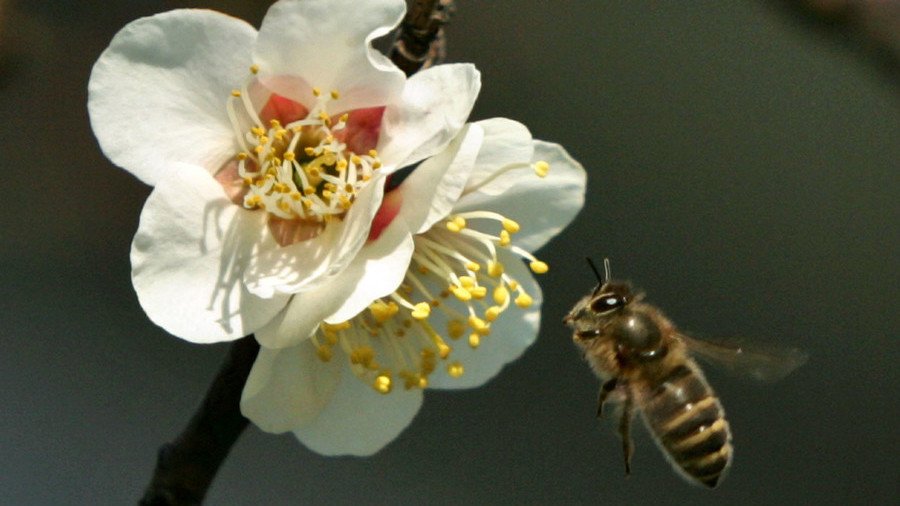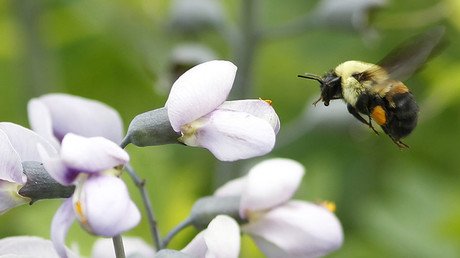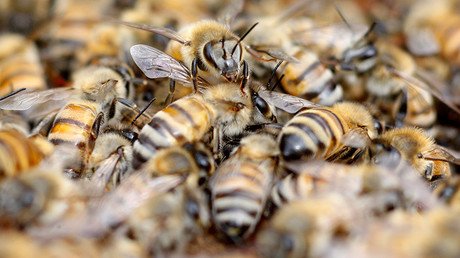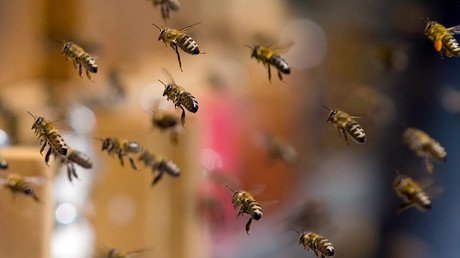Canada fails to protect bees by opting against full pesticide ban – environmentalists

Environmental groups in Canada have lashed out at the government, saying it has failed to protect bees. Ottawa has proposed limiting the use of bee-killing insecticides, but environmentalists want them completely banned.
On Tuesday, Health Canada’s pest control body issued a report on a group of pesticides, called neonicotinoids, giving the green light to their further use before making final decisions in March 2018.
The move riled conservation activists, who are calling on the government to follow the lead taken by other countries and introduce an all-out ban on the chemicals. Also known as neonics, they are applied in a wide range of areas, including agriculture, forestry and flea treatment for pets.
“Health Canada has declined to take substantive action to protect bees,” the CEO of Friends of the Earth (FoE) Canada, Beatrice Olivastri, said, adding that by contrast, countries such as France and the UK had moved to permanently ban neonics. “They first let us down by conditionally registering these products and now, they’re proposing a dog’s breakfast of measures that will confuse users while continuing to harm bees.”
Following reports on mass bee population deaths in 2012, the Pest Management Regulatory Agency (PMRA) embarked on research to evaluate the impact of neonics. In 2016, the agency proposed phasing out one of the three insecticides. The latest measure, however, only saw a plan to partially restrict the use of two others, clothianidin and thiamethoxam.
Neonics “pose threats to non-target organisms like native bees which are responsible for pollinating one third of the world’s crops and 90 percent of all wild plants,” FoE says. The organization, along with three other groups, filed a lawsuit against the PMRA in a bid to stop the authorities from approving the use of the two neonics without proper study of the risks they pose for bees.
After 5 years of study, Health Canada’s Pest Management Regulatory Agency has again failed to protect #bees & #pollinators. Its re-evaluation report on two #neonicotinoids proposes to allow continued use of clothianidin & thiamethoxam in Canada. Read more: https://t.co/Fa8C0LrdEYpic.twitter.com/ABjs2kGRyQ
— Friends of the Earth (@FoE_Canada) 19 декабря 2017 г.
A group of researchers from University of California San Diego and the University of Bologna evaluated the toxic effects of neonics on bees, discovering that exposure to the chemicals, together with other factors, such as poor nutrition, have reduced honey bee survival by 50 percent.
READ MORE: To bee, or not to bee: Will bumblebees become extinct?















